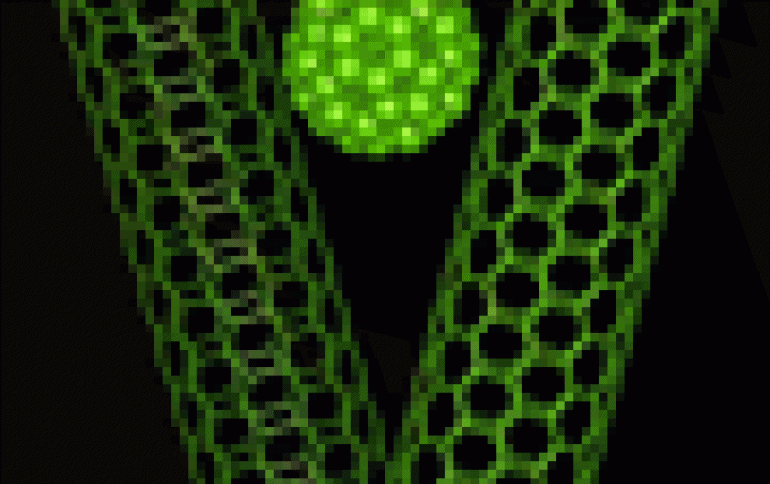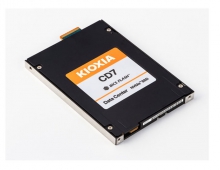
HP Claims Advance in Semiconductor Nanotechnology
Researchers at Hewlett-Packard have devised a way to make a specialized type of computer
chip up to eight times denser using nanotechnology, in a development that could extend
the life of current chipmaking technologies, the company said on Tuesday.
The advance by HP could prove to be significant in an area of technology --
nanotechnology -- that has to date been long on promises and short on near-term,
real-world applications.
Commercial applications of HP's research could potentially be used not too far in the future in its own line of computer printers, the world's largest, in other consumer electronics areas, and throughout the chip industry at large, HP said.
"A lot of this is advantages that can be harvested in the near term," said Stan Williams, a senior fellow and director of quantum science research at HP's research laboratory, known as HP Labs. "It's possible to have some real hardware you can start to play with in about a year."
Historically the chip industry has advanced the power of semiconductors by shrinking the size of transistors, which switch on and off and, in concert, form the computational power of the chip.
A long-held axiom in the chip industry is that the computing power of chips doubles every 18 months to 24 months, as production costs remain the same, an observation known as Moore's Law. That increase in computing power has been largely due to shrinking the transistor's size.
What's different in HP's approach is that the company has devised a way using nanowires to shrink the density of the chip without shrinking the transistor. This approach also cuts power consumption, which is an increasing problem for the semiconductor industry as computer chips perform ever more calculations.
HP used a certain type of computer chip, the field programmable gate array, or FPGA, to achieve the eight-fold increase in chip density with its application of nanotechnology.
"We essentially provided a recipe to improve the circuitry of FPGA's by the equivalent of three generations of Moore's law without having to shrink the transistor," Williams said.
The highly flexible FPGA chips are useful because their functions can be changed, and are often used in the telecommunications and printer industries, among others, in preproduction models as engineers finalize products. But because of their flexibility, they are more expensive to make.
HP's research proposes a hybrid model that combines a traditional chipmaking technology known as CMOS for fabricating the transistors with the use of nanowires to form the wires and switches that connect to the logic-performing transistors.
HP's research will appear in a paper in the January 24 of the British journal Nanotechnology.
Commercial applications of HP's research could potentially be used not too far in the future in its own line of computer printers, the world's largest, in other consumer electronics areas, and throughout the chip industry at large, HP said.
"A lot of this is advantages that can be harvested in the near term," said Stan Williams, a senior fellow and director of quantum science research at HP's research laboratory, known as HP Labs. "It's possible to have some real hardware you can start to play with in about a year."
Historically the chip industry has advanced the power of semiconductors by shrinking the size of transistors, which switch on and off and, in concert, form the computational power of the chip.
A long-held axiom in the chip industry is that the computing power of chips doubles every 18 months to 24 months, as production costs remain the same, an observation known as Moore's Law. That increase in computing power has been largely due to shrinking the transistor's size.
What's different in HP's approach is that the company has devised a way using nanowires to shrink the density of the chip without shrinking the transistor. This approach also cuts power consumption, which is an increasing problem for the semiconductor industry as computer chips perform ever more calculations.
HP used a certain type of computer chip, the field programmable gate array, or FPGA, to achieve the eight-fold increase in chip density with its application of nanotechnology.
"We essentially provided a recipe to improve the circuitry of FPGA's by the equivalent of three generations of Moore's law without having to shrink the transistor," Williams said.
The highly flexible FPGA chips are useful because their functions can be changed, and are often used in the telecommunications and printer industries, among others, in preproduction models as engineers finalize products. But because of their flexibility, they are more expensive to make.
HP's research proposes a hybrid model that combines a traditional chipmaking technology known as CMOS for fabricating the transistors with the use of nanowires to form the wires and switches that connect to the logic-performing transistors.
HP's research will appear in a paper in the January 24 of the British journal Nanotechnology.





















